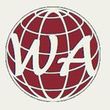Plenaries
We have to announce that two eminent scholars of the history of English have accepted our invitation to deliver plenary papers at HEL-P 2017. Prof. Julia Fernández Cuesta (Universidad de Sevilla) - Anecdotal evidence: The evolution of Old Northumbrian in context (Universidad de Sevilla)
Compared to the corpus of northern Middle English, the evidence that has survived from Northern Old English is extremely scarce and patchy. Furthermore, the majority of the witnesses cannot be accurately located. Nevertheless, despite the obvious ‘bad data’ problem, revisiting this anecdotal evidence has proved that, despite all the research carried out in the past, it is still possible in the 21st century to learn more about a period/dialect of English which is characterised by extensive change at all linguistic levels (Fernández Cuesta and Pons-Sanz 2016 and Cole 2014 are recent examples).
This lecture will revisit the extant textual and epigraphic evidence from Old Northumbrian and explain the problems we encounter when attempting to construct a narrative of the evolution of northern English. The study of the texts has been greatly facilitated by the various corpora now available (DOEC, the Brooklyn Parsed Corpus of Old English) and recent diplomatic editions (Tamoto 2013, Jolly 2013), but understanding the physical and historical contexts is also necessary for linguistic analysis. In an article on Old English glossography Michael Lapidge (1982) claimed that if we wish ultimately to understand the Anglo-Saxons’ intellectual world we must turn our attention to the Latin context in which glosses were produced. I will set out to demonstrate that from the perspective of the linguist and of the philologist, it is also crucial to consider what kind of object each text is (an inscription, a poem, or a gloss), and in what historical context it came into being. Failure to do so inevitably leads to erroneous conclusions. I will also try to show that there is still much to learn from the study of the individual idiolects in context, even when there are many gaps in our history that cannot be filled.
Dr. Joanna Kopaczyk (University of Glasgow) - On the impossibility (?) of historical corpus phonologyCorpus phonology, a new subdiscipline of phonology (Gut and Voorman 2014), has emerged as a result of technological advances in speech analysis and digital data processing. New automatic tools and computer-based methods allow for constructing purpose-built corpora of sound recordings which can then be mined with special software for interesting features of sound production, sound systems or acquisition patterns. Quantification of the results comes with the package. Would any of that be at all possible for historical phonology? Physical sound recordings are, alas, out of question. The best source of data for historical phonology is spelling variation which so far has been treated as a nuisance in historical corpus linguistics rather than a useful feature of surviving data.
In this talk I draw on the methodologies and tools developed at the University of Edinburgh for the FITS project (From Inglis to Scots) which looks at the possible phonological significance of spelling variation in 15th-century Scottish legal and administrative texts. I introduce the method of grapho-phonological parsing as a way of bringing together the layer of spelling units and the underlying poorly resolved sound values (cf. Laing and Lass 2003) and present the tools which enable the researcher to specify search parameters and quantify results. I review the challenges and opportunities involved in processing the data and argue that the methods and tools of the FITS project open new exciting ways of looking at spelling variation in unstandardised writing systems, laying the groundwork for historical corpus phonology.
